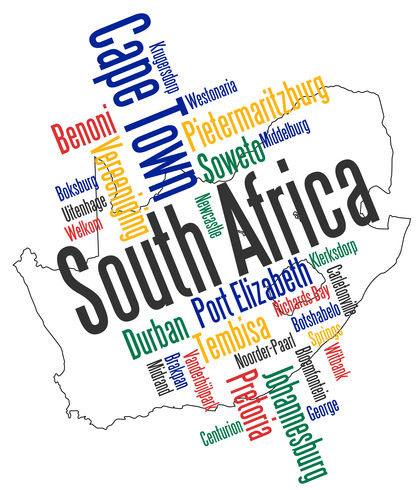In the tapestry of global commerce, South Africa stands as a formidable player, its foreign trade sector serving as a vital artery pumping lifeblood into its economy. This intricate network of international exchange shapes the nation’s financial landscape, forging partnerships that span continents and cultures.

Image: www.nationsencyclopedia.com
Embark on a captivating journey as we delve into the world of South Africa’s foreign trade, unraveling its complexities and uncovering its profound impact on the country’s economic destiny. Along the way, we’ll shed light on the latest trends, explore expert insights, and empower you with actionable tips to navigate the ever-evolving landscape of global trade.
A Historical Tapestry: Tracing the Evolution of South Africa’s Foreign Trade
The roots of South Africa’s foreign trade can be traced back to the colonial era, when the country’s vast natural resources drew the attention of European powers. Gold, diamonds, and agricultural products became the lifeblood of South Africa’s exports, fueling economic growth but also laying the foundation for deep-rooted economic inequalities.
Post-apartheid South Africa witnessed a significant shift in foreign trade policy, with the government prioritizing diversification to reduce reliance on a narrow range of commodities. This strategic move has paid dividends, transforming South Africa into a regional economic powerhouse with a diverse export portfolio that includes manufactured goods, automobiles, and value-added agricultural products.
The Pillars of Foreign Trade: Key Commodities and Trading Partners
South Africa’s foreign trade landscape is defined by a portfolio of key commodities that drive export earnings. These include:
- Minerals and Metals: Gold, platinum, and other minerals constitute a significant portion of South Africa’s exports, underpinning its position as a major global supplier.
- Agricultural Products: South Africa is a leading exporter of agricultural products, including citrus fruits, wine, and maize, showcasing the country’s favorable climate and fertile soils.
- Manufactured Goods: The manufacturing sector has emerged as a key driver of exports, with South Africa producing automobiles, machinery, and electronics for both domestic and international markets.
In terms of trading partners, South Africa has forged strong economic ties with countries across the globe, including:
- China: China has become South Africa’s largest trading partner, absorbing a significant portion of the country’s exports, particularly minerals and metals.
- European Union: The European Union remains an important trading bloc for South Africa, with trade flows centered around manufactured goods, agricultural products, and automobiles.
- United States: The United States is a key market for South African exports, including wine, agricultural products, and minerals.
The Economic Impact: Driving Growth and Generating Employment
South Africa’s foreign trade sector plays a pivotal role in the country’s economic performance, contributing to:
- GDP Growth: Exports generate foreign exchange earnings, which contribute to overall economic growth and prosperity.
- Job Creation: Foreign trade supports numerous industries and sectors, creating employment opportunities for South Africans across the country.
- Economic Diversification: By exporting a diverse range of products, South Africa reduces its dependence on a narrow set of commodities, enhancing economic resilience.

Image: futuremoney.co.za
Challenges and Opportunities: Navigating the Trade Landscape
While South Africa’s foreign trade sector offers immense opportunities, it also faces challenges, including:
- Global Competition: South Africa competes in a highly competitive global market, facing stiff competition from other exporting nations.
- Trade Barriers: Some countries impose tariffs or other trade barriers that can hinder South African exports.
- Currency Fluctuations: Fluctuations in the value of the South African rand can impact the competitiveness of exports and the profitability of foreign trade.
Despite these challenges, South Africa is well-positioned to capitalize on opportunities in the global trade arena, including:
- Expanding Existing Markets: South Africa can expand its market share in existing trading partner countries, particularly in high-growth regions.
- Exploring New Markets: Identifying and penetrating new markets offers immense potential for South African exporters.
- Value-Added Exports: By focusing on exporting value-added products, South Africa can increase export earnings and enhance economic development.
Foreign Trade Of South Africa
Expert Insights: Navigating the Complexities of Foreign Trade
“The key to success in foreign trade is understanding the nuances of each market and adapting to their specific requirements,” advises Dr. Mark Jenkins, a prominent international trade expert. “Thorough research and a deep knowledge of cultural and regulatory differences are essential for navigating the complexities of global trade.”
According to Ms. Sarah Patel, CEO of a leading South African export company, “Building strong relationships with overseas partners is crucial in foreign trade. Regularly attending trade shows, exhibitions, and networking events can help you forge valuable connections.”
Actionable Tips: Em






